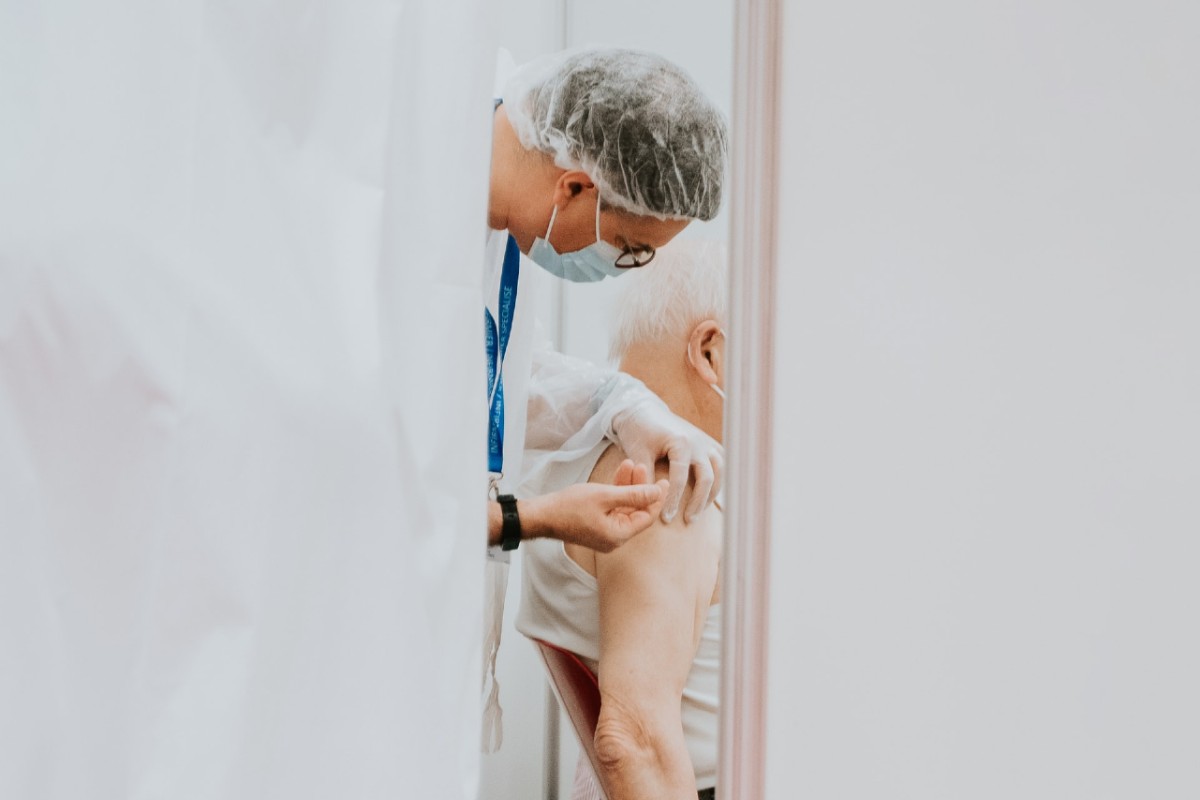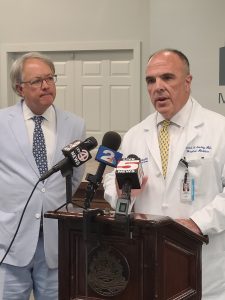
Staff reports | Despite guidelines and mandates to curb the spread of the COVID-19 virus and its variants, state officials say the best defense remains vaccination. But the state’s vaccination rate remains comparatively low.
“Complete vaccination is the number one way to stifle the impact of the delta variant,” a spokesperson at the state Department of Health and Environmental Control (DHEC) said this week. “Low statewide vaccination rates allow the virus to continue to mutate and new, more significant variants to spread.
“Just like vaccines have been overwhelmingly successful in saving populations from polio, tetanus, hepatitis, measles, whooping cough, the flu and many other diseases, we have life-saving vaccines that protect us from this new disease, including its variants, widely available.”
In fact, Charleston Mayor John Tecklenburg has described the current resurgence of the virus as an “optional pandemic” — one that the public can “opt out of” by getting vaccinated.
Dr. Patrick Cawley, CEO of MUSC Health, recently said he couldn’t stress enough the safety and importance of getting vaccinated.
“You look at almost every health system in the country, the most vaccinated group, in the high 90 percent, is almost always doctors,” he said. “Physicians are trained to evaluate large amounts of clinical data and studies … they’ve looked at themselves and have decided to get vaccinated.”
Cawley denounced common “fables” he hears from those who show severe vaccine hesitancy, such as the speed with which they were developed and that the methods used by vaccines are experimental and unknown.
“The fable is that the vaccine is not safe and it’s not effective, and that is absolutely not true.”
Situation becoming dire, again
Across the nation, the health environment is already dire. Reports nationwide detail stories of those hospitalized with severe symptoms asking nurses and doctors for the vaccine only to be told it’s too late. One hospital in Louisiana is facing overwhelming influxes of patients, according to a CNN report, leading to ward closures and a skyrocketing ICU population.
DHEC’s statewide hospital bed capacity tracker shows 8,537 of 11,165 inpatient beds in 89 hospitals were occupied as of July 27. Of those occupations, 453 were COVID-related, and 29.36 percent of those inpatients were in the ICU.
MUSC’s Epidemiology Intelligence Project said while hospitals were still well-equipped to handle the surge, climbing numbers will eventually threaten area hospitals. As of Aug. 2, 74 percent of MUSC inpatient hospital beds were occupied, and 72 percent of ICU beds in Charleston were occupied.
And even though hospitals are not facing extreme circumstances here yet, the rates of infection are still growing.

“We need to look at two things: you need to look at the number of actual infections that have happened, and those do remain low, but then you really need to look at the leading indicator … the rate of change,” Cawley said. “The rate of change has had a very, very, very steep uptick in the last three or four weeks. It’s just a matter of time before the total number of cases will start increasing.”
Who is hospitalized: The unvaccinated
There is one key difference between this new wave of hospitalizations compared to last year’s — the ages are getting lower.
“Almost everybody we’re seeing in the hospitals are people that are unvaccinated, first of all,” Cawley said. “So if you look at who’s not vaccinated, it’s very, very little for the older age groups — it’s the middle age groups, and it’s trending lower.”
Extra precautions advised to protect communities
The rapid spread of more infectious variants is prompting health officials to double-down on safety precautions that were thought to have run their course.
New guidance from the federal Centers for Disease Control and Prevention are reminiscent of 2020 warnings, advising indoor masking, even for fully vaccinated individuals. This is because while fully vaccinated people are at low risk of infection themselves, they are still capable of transmitting the disease to others.
Earlier this week, Columbia Mayor Steve Benjamin declared a state of emergency due to rising COVID-19 rates. The order, which will be on the city council agenda for a vote on Tuesday, requires students, faculty, staff and visitors to schools to wear masks to stop the spread. The order is expected to pit the city against the state in a legal battle over a state budget proviso that banned a mask mandate in local schools.
Cawley said while it is possible to prevent a second lockdown in communities across the state, he doesn’t think now is the time to rule it out.
“It’s hard to predict these things and the impact they have,” he said. “At this point, there’s significantly more vaccines than demand. Even if everybody that has not been vaccinated wanted to get vaccinated tomorrow, we could easily handle that.”
A version of this story by Skyler Baldwin appeared earlier this week in the Charleston City Paper. Have a comment? Send to feedback@statehousereport.com















 We Can Do Better, South Carolina!
We Can Do Better, South Carolina!